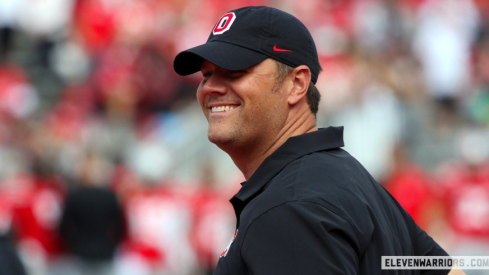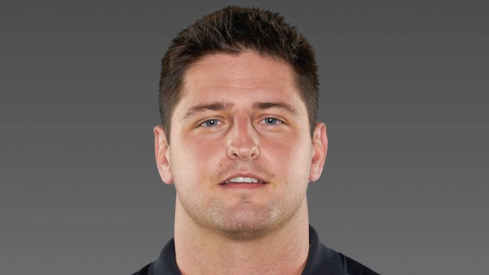Ohio State announced a plan to raise 2017 ticket prices Monday morning. It's a sign of the times where elite coaches command seven-figure salaries.
Less than 24 hours later, Tom Knox of Columbus Business First unearthed a 2005 conversation between former Ohio State athletic director Andy Geiger (most Ohio State fans remember him as "Jim Tressel's boss") and William Struder, the emeritus director of libraries.
In it, Geiger laments the football-industrial complex while also acknowledging prices need to go up to meet demand.
Perhaps most interesting, however, is this exchange where Geiger talks about the "curse of football" and says he's more proud of a fencing national title than the 2002 national football title:
I tried to do my job as effectively as I possibly could as director of athletics. I was meant to come here and advocate strong athletics. We have a large department and we’re winning more championships, we’re better across the board than we were. If I have a criticism of the athletic department that I inherited, it was a place that if you just came to work every day and kept your nose clean and didn’t complain very much, it was a safe place to work. And I don’t run a place like that. I don’t want it to be a safe place to work. I think we all have to earn our way.
I also think that the curse of football is greater if you’re not good at anything else, if you’re not making a really significant effort at other things. I mean both within the athletics department and elsewhere. I think that football is really good at Ohio State because it’s really good. It’s excellent. And I think that being excellent is something that all parts of the university should strive to be, and many parts are truly, truly excellent. I don’t think athletics ought to be faulted for being good.
I’m prouder of our fencing national championship than I am of our football national championship, simply because I think trying very hard and succeeding at being good at as many sports as possible validates the football program. If we were just having the teams for the sake of having them, and not investing anything in them and winning championships in football, then we would be a football factory.
A trustee recently, within the last six months, said that as part of the transition to the new athletic director and all of that, they thought we ought to drop 10 or 12 sports and the resulting savings ought to be turned over to the university for use in academic purposes. My response to that, “So you really want to acknowledge that we have a professional football team, and that their job is to make as much money for the university as they possibly can and that there is really not much else that we do this for?” Others agreed with me and that motion has no traction. But I think that there is extraordinary faculty members at Ohio State.
It's refreshing to hear a former power-broker speak candidly about the issues facing big-time athletics.
It'd also be interesting to see how Geiger feels about all this in 2016. Ohio State is winning national titles in everything from wrestling to women's rowing, but the professionalization surrounding the football team ("big game" tickets up 228% since 2005) is equally undeniable.


